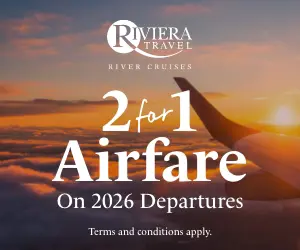Washington Post Gives Advice on Finding a Good Travel Agent
by Richard D'Ambrosio
Photo: Shutterstock.com
A Washington Post article this weekend re-initiated the national discussion about the value and importance of finding a reliable, honest travel agent.
The story, by national columnist Christopher Elliott, addressed the merits of various certifications and seals of approval, calling some of them “meaningless” and “confusing,” while adding that the future credibility of agents will be based on the industry policing itself.
Elliott discussed the new American Society of Travel Agents’ (ASTA) Verified Travel Advisor (VTA) program, launched this summer at ASTA’s global convention. For the VTA to become “the travel equivalent of a ‘Good Housekeeping’ seal of approval,” Elliott wrote “ASTA will need to hold agents accountable to a high standard, which would mean removing the check mark from a bad agent, if necessary.”
Elliott also noted the 12-month-long Travel Institute’s Certified Travel Associate (CTA) and Certified Travel Counselor (CTC) programs, and the need for agents to recertify every year.
He also described how consumers could have greater confidence with an agent who is part of a franchise or a member of a well-known consortium. “These large travel companies have a valuable brand to protect, so they have a vested interest in making sure their employees and members provide quality service,” Elliott wrote.
Travel agent organizations need to police themselves
Reprising his challenge at the ASTA San Diego conference to members to police themselves and raise their game, he wrote this weekend: “The [ASTA] logo may mean the agent is serious enough to spend $330 a year on membership and that he or she has agreed to abide by the organization’s code of ethics. But there’s a vast gray area between extraordinary customer service and unethical practices.”
In the comments section of the article, a travel agent reader said: “yes there are too many acronyms out there that don’t mean that much. Referrals are important as is a recognized brand that will be protected.”
Commenter “demeador” advised consumers to “check the history of the agency with consumer groups or many state Attorneys General have registries. If you need an agent quickly, choose an agent or agency that has been around a while. Experienced agents with a volume level have some sway with carriers and hotels via back door contacts.”
In the end, Elliott, said, “the real seal of approval is yours.” He quoted Elaine Carey, an agent with Travel Experts, in Whispering Pines, N.C., who said the best certification is a referral from someone you trust.
Some say a good, competent agent is invaluable
The debate continued in the readers’ comments section of the Washington Post website. “Fishbum52” said: “well, sure, you might not need a travel agent if you’re flying from Chicago to LA. But we just spent 3 1/2 weeks in France and our Virtuoso agent made the trip a joy. We spent 9 days on a river cruise (which one would you pick? there are literally a dozen or more cruise lines), had a private guide in Paris (no museum lines), and got great hotel rates and locations. When you’re traveling someplace new, you don’t know what you don’t know so there’s much room for errors.”
Another commenter, “dmeador,” wrote that: “A good, competent agent can be invaluable. Anyone can book a simple trip, but an experienced agent can give advice that can save many headaches. A competent agent can also help troubleshoot and get clients out of jams while traveling.”
Others say something always goes wrong, how do travel agents still exist
But others challenged the value of a good agent. “FarTraveler” claimed to have “several million miles of air travel” across 90 countries, and “residing in at least 20. Sometimes my business travel requires me to ‘work’ through a TA. Invariably it goes wrong, even when I provide the exact flights, etc., I want. Perhaps for people who are less experienced, TAs might be useful, but the caveats listed in the article are very important.”
Commenter “dmeador” asked FarTraveler if their company used “a massive call center or a smaller office with agents that get to know the client? The large call centers have agents handling multiple accounts requiring familiarity with multiple travel policies. Incompetence should not be tolerated. Take your concerns to your travel boss or whomever decides on which travel service to use.”
“Dmeador” also wrote: “If you do a lot of international travel, a smaller office or use of a single agent is preferable. International tariffs can be tricky so a good relationship is key. Don’t settle for second best.”
“Hadrap” expressed the common theme of wondering how agents aren’t extinct. “And here I thought travel agents were more endangered than coal miners… It’s got to be pretty hard to show sufficient value added on a travel agent when so much is available through the various search engines. Look at the costs of the training, hanging out waiting for clients on off season and trying to build up customer rapport it is hard to know how a person/ business could make it. I wish the travel agents and those who hire them much luck.”
“Clearwater TG” recommended consumers use “travel videos and TV shows. Excellent guide books. Apps for foreign city subway systems, Google, Expedia. I have never thought of booking travel with an agent. I have had no negative travel experiences where I thought, gee I wish I had used a travel agent. But, like some people enjoy traveling with a group, everyone has their own comfort level with foreign travel.”
























